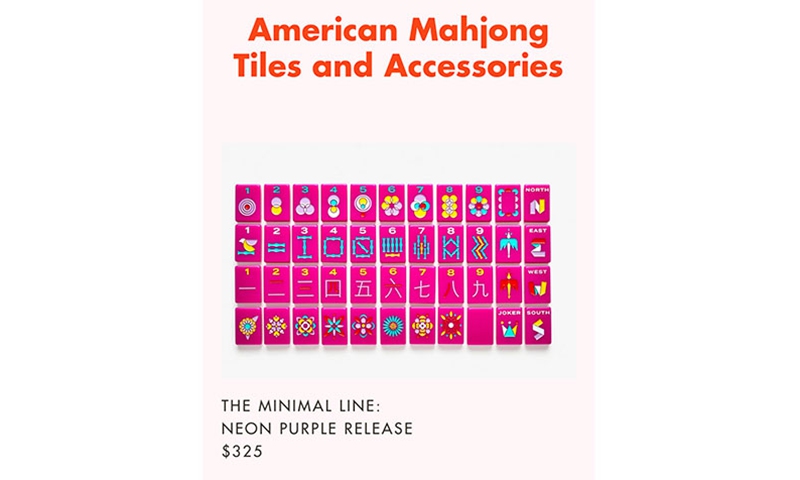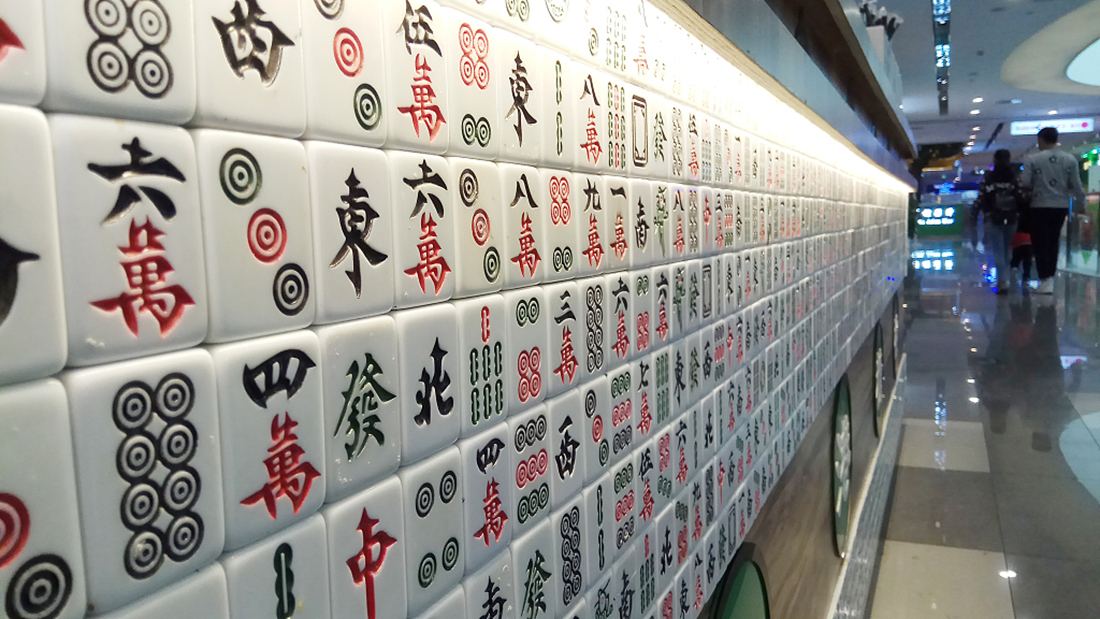ARTS / CULTURE & LEISURE
Redesigned game of 'American Mahjong' enrages Chinese and Chinese Americans

Photo: Screenshot of The Mahjong Line website
A US company was widely condemned for redesigning Mahjong tiles and renaming the game "American Mahjong", lighting fury among Twitter users, who said the move was racist and disrespectful of Chinese culture.
The company apologized on Tuesday, but some netizens were still not satisfied.
The Mahjong Line, based in Dallas, was the brainchild of Kate LaGere, one of the three founders who are all white women, after she "discovered" that the traditional tiles had the same designs and "did not reflect the fun" she had while playing the game, according to the company's website.
The company changed the colors and patterns of the traditional mahjong tiles to some colorful images such as bar soap and flour. The mahjong tile sets had a price tag between $325 and $425 and were launched on Tuesday.
The neon-colored mahjong tiles quickly enraged many netizens on Twitter. Some Twitter users wrote that to them, mahjong is more than a game.
"Shall we talk about mahjong? There's nothing like the vivid art, smooth lines, and satisfying clacks of a classic mahjong set. But to many Chinese and Chinese Americans, it's much more than just a game," one netizen "Pearl River Mart" wrote on Twitter.

A wall of mahjong tiles stands out in a shopping mall in Jinan, East China’s Shandong Province on October 23, 2017. Photo: VCG
Some netizens questioned whether the company's redesign and the company's founders' attitude toward traditional mahjong was cultural appropriation and reflected their prejudice that US culture is better than Asian culture.
According to introductions on the website of the Chinese mahjong exchange center, patterns on mahjong tiles all have their own meanings. For example, three kinds of mahjong tiles, Simples tiles, Honors tiles and Bonus tiles, remind people to care about the direction of their life.
Simple tiles represent the idea that people should have good intentions toward others, so that they can have a consummate life. Honor tiles remind people to pursue the truth and Bonus tiles ask people not to be greedy.
"I love playing mahjong, which is very popular in my hometown. I saw the redesign and think it cannot compare with our traditional tiles as the traditional ones have deep cultural ties," a resident in Southwest China's Chongqing Municipality surnamed Li told the Global Times.
"Mahjong is not complicated. Players can sort out them in line with patterns and count the numbers, which is the rule."
Li said she can understand why these netizens are so angry.
Zhang Yiwu, a professor at Peking University, said he thought that the redesign might have come about because some foreigners have difficulties understanding what the patterns mean and want to make the game easier, and that they were not changed to abuse Chinese culture.

